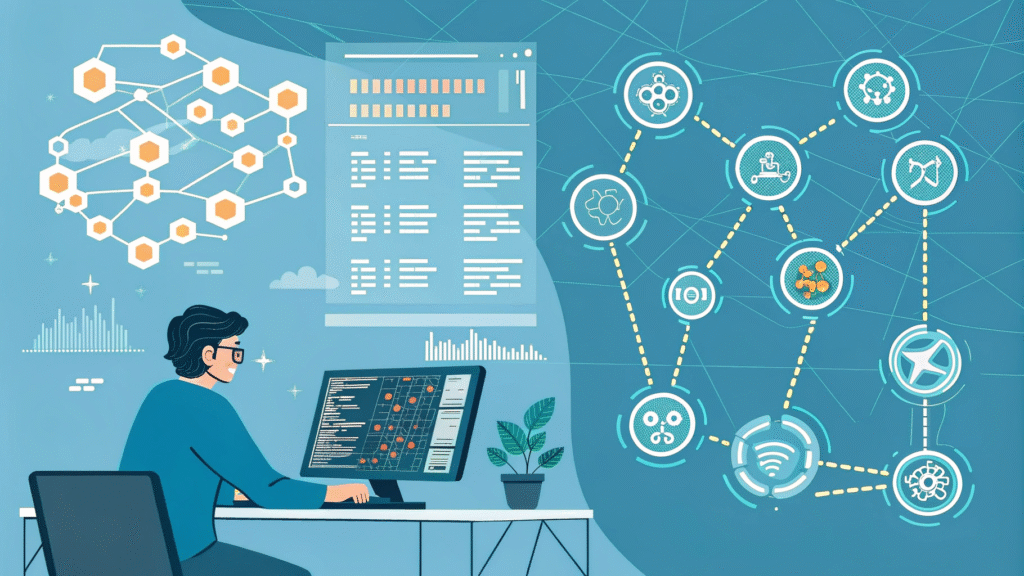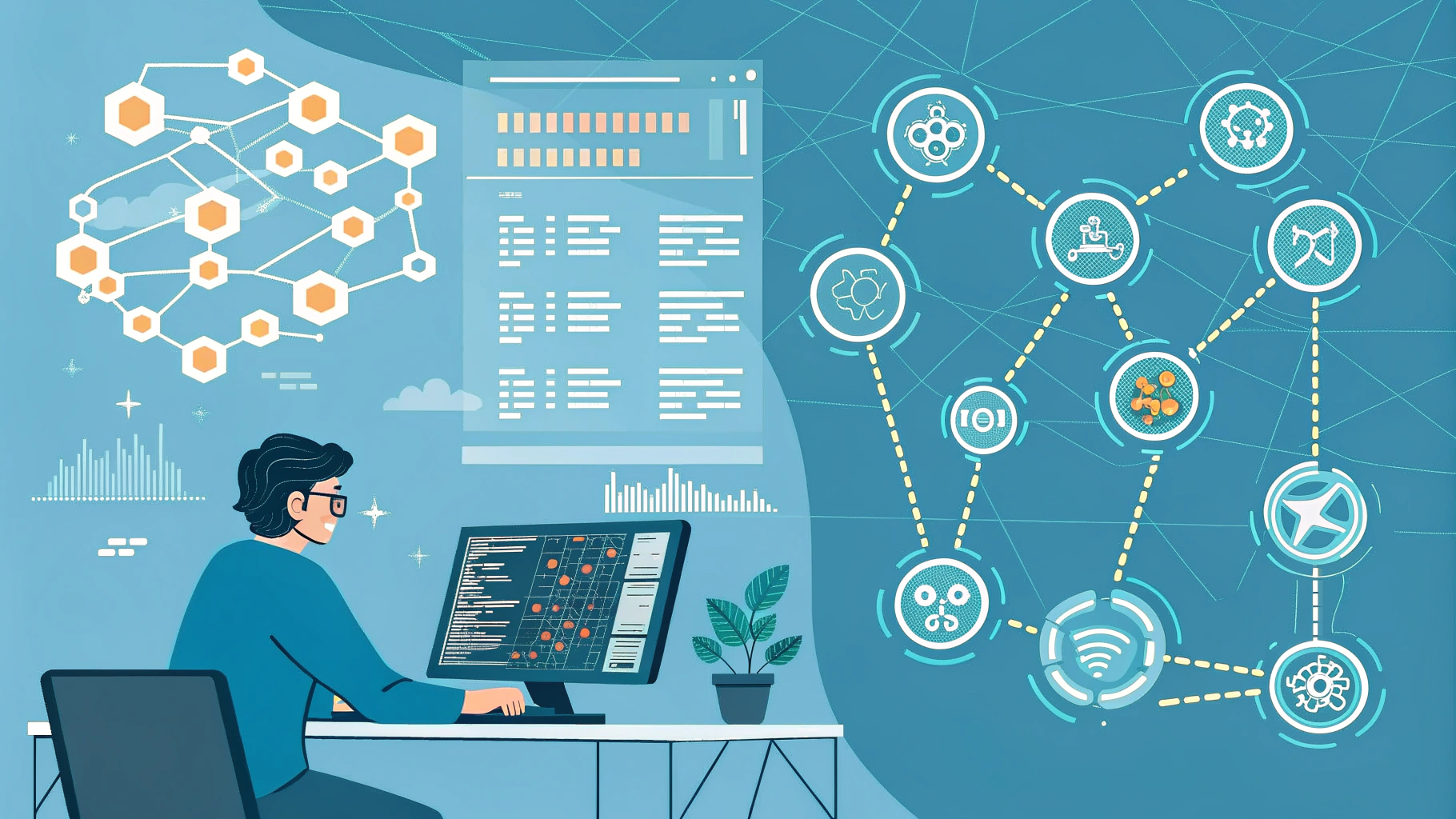Artificial Intelligence (AI) is no longer just a futuristic concept—it is actively reshaping how developers write, debug, and deploy code in 2025. From automated code generation to real-time debugging, AI is becoming a powerful companion for programmers of all levels.
This article explores how AI is revolutionizing coding, the top tools available, benefits, limitations, and the future of AI-powered software development.

Introduction: AI Meets Coding
For decades, programming required manual effort: writing long lines of code, searching documentation, and debugging errors. Today, thanks to AI-powered coding assistants, developers can:
- Generate code from natural language commands.
- Debug complex errors instantly.
- Learn new programming languages faster.
- Optimize performance with AI-driven recommendations.
AI has made coding faster, smarter, and more accessible to both beginners and professionals.
Top AI Features Transforming Coding in 2025
1. AI Code Generation
Modern AI tools like ChatGPT, GitHub Copilot, and Replit Ghostwriter can generate entire functions or scripts based on plain English instructions.
Example: Instead of writing a full Python sorting algorithm, a developer can simply type:
“Write a Python function to sort a list in ascending order”—and AI generates the code instantly.
2. Automated Debugging
AI assistants detect and fix syntax errors, logical mistakes, and runtime bugs. They also explain what went wrong, helping developers learn while coding.
3. Smart Code Suggestions (Autocompletion)
AI-based IDEs suggest relevant variables, functions, and libraries while typing, saving time and reducing typos.
4. Multi-Language Support
AI supports multiple languages like Python, Java, JavaScript, C++, Rust, and Go, enabling developers to switch between projects seamlessly.
5. Natural Language Queries
Instead of searching documentation, developers can ask AI:
“How do I connect MongoDB with Node.js?”
The AI provides ready-to-use snippets along with explanations.
6. Code Optimization
AI suggests performance improvements, such as reducing memory usage or optimizing loops for faster execution.
7. AI-Powered Testing
AI can write unit tests, integration tests, and security checks, ensuring software quality and reducing errors before deployment.
Real-World Applications of AI in Coding
1. Web Development
AI generates HTML, CSS, and JavaScript code for websites, designs layouts, and even fixes broken styles automatically.
2. Mobile App Development
Developers use AI to build iOS and Android apps faster by auto-generating templates and backend APIs.
3. Game Development
AI assists in game physics, character behaviors, and procedural content generation, making game coding faster and more creative.
4. Data Science & Machine Learning
AI helps data scientists by generating Python scripts for data cleaning, visualization, and model building.
5. Cybersecurity
AI identifies vulnerabilities in code, prevents SQL injections, and recommends security best practices.
Popular AI Coding Tools in 2025
- GitHub Copilot – AI-powered autocomplete for code.
- ChatGPT – Generates, explains, and debugs code in multiple languages.
- Replit Ghostwriter – Real-time AI coding partner.
- Tabnine – AI assistant for faster autocompletion.
- CodiumAI – Helps in writing test cases.
Benefits of AI in Coding
- Faster Development: Projects complete in days instead of weeks.
- Accessibility: Beginners can start coding without deep expertise.
- Error Reduction: Automated debugging minimizes mistakes.
- Higher Productivity: Developers focus on creativity instead of repetitive tasks.
- Cost Efficiency: Reduces development costs by automating routine coding.
Challenges and Limitations
- Overdependence on AI: Beginners may rely too much on AI without learning fundamentals.
- Security Risks: AI-generated code may introduce vulnerabilities.
- Accuracy Issues: Sometimes AI generates incorrect or inefficient solutions.
- Ethical Concerns: Code ownership and plagiarism risks exist.
Future of AI in Software Development
By 2030, AI is expected to become an integral part of every development workflow. Future possibilities include:
- Fully Automated Apps: AI generating entire applications from user requirements.
- AI Pair Programming: Developers and AI working together like human teammates.
- Emotion-Aware AI IDEs: AI assistants understanding developer stress and offering solutions.
- Low-Code/No-Code Platforms: AI enabling non-programmers to build apps easily.


